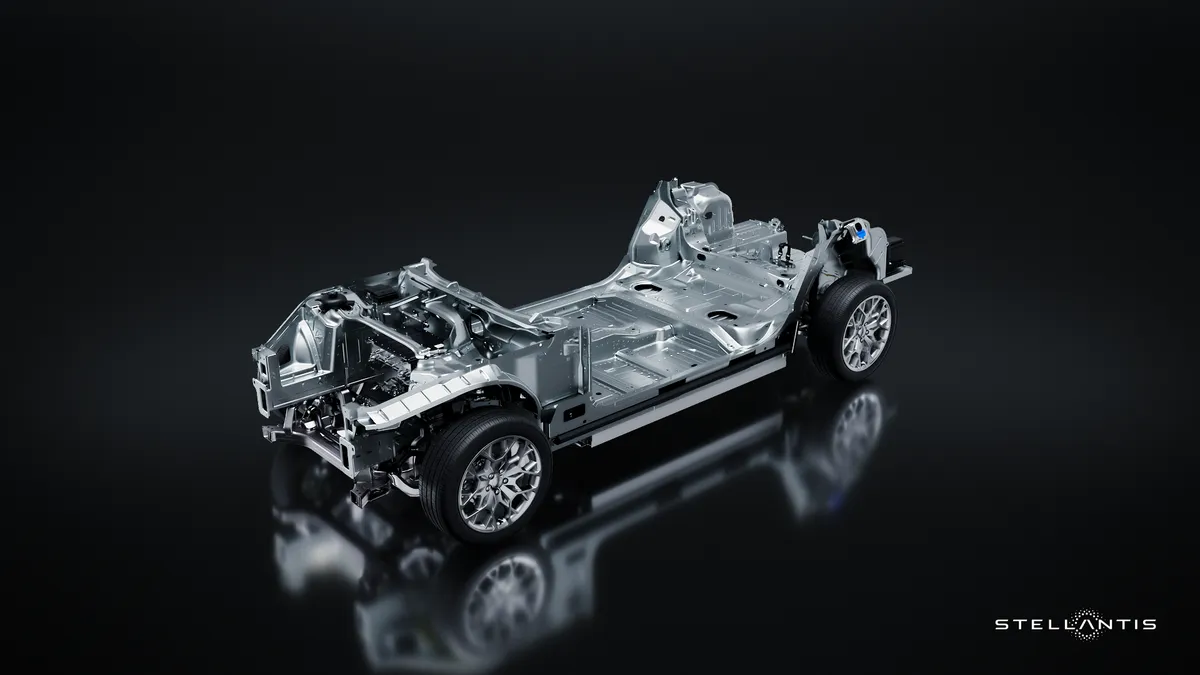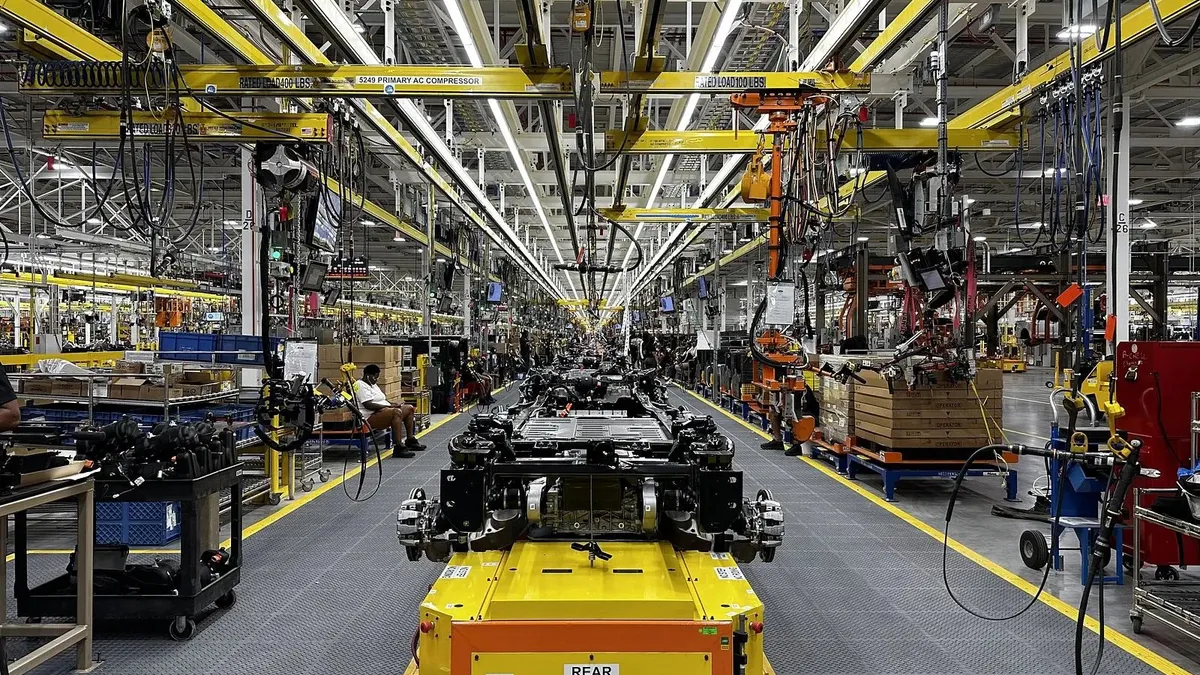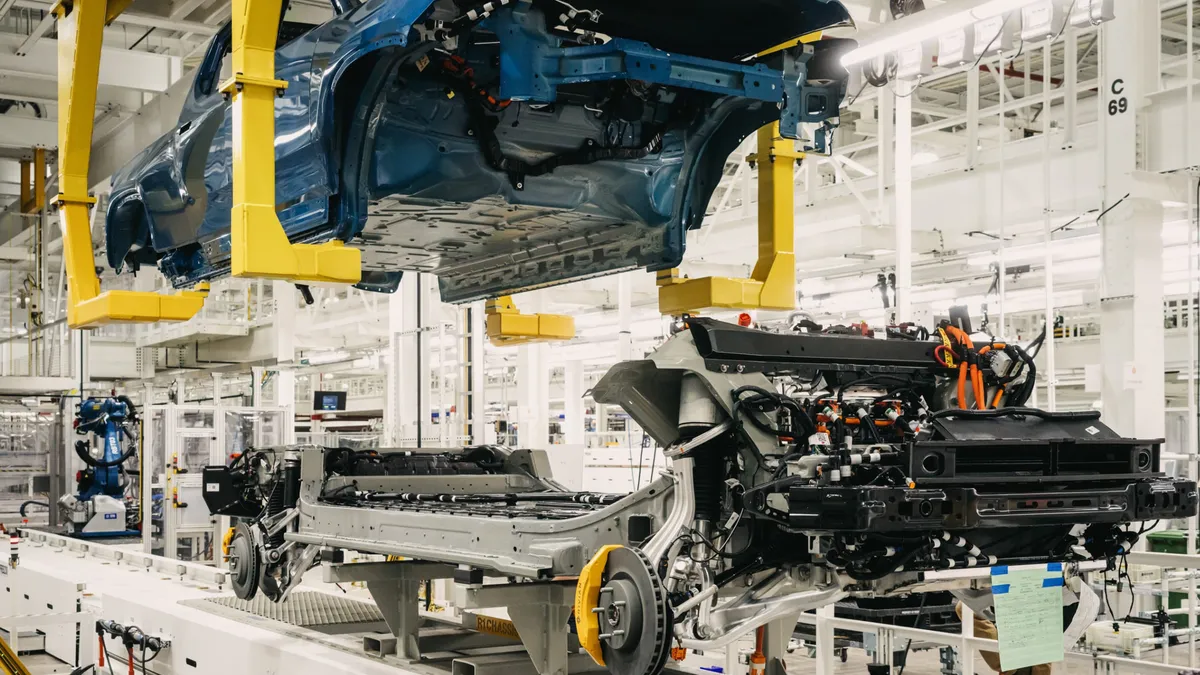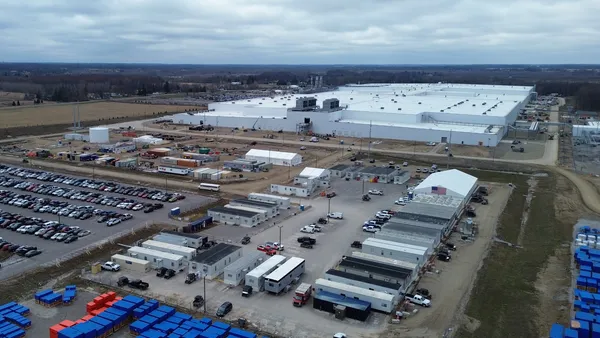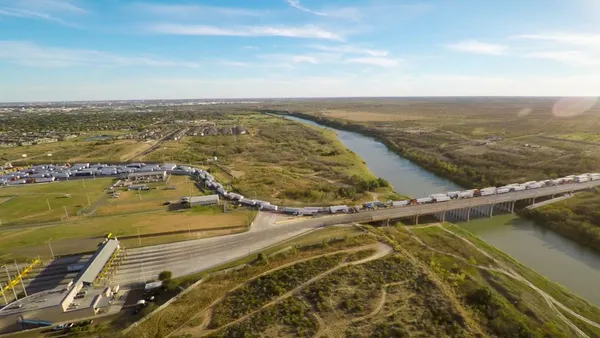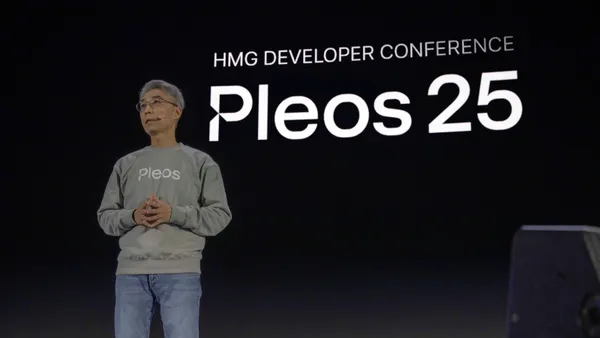Dive Brief:
- Stellantis and Texas-based battery manufacturer Zeta Energy will jointly develop advanced lithium-sulfur battery cells for use in the automaker's future electric vehicles, the companies announced Dec. 5.
- Lithium-sulfur batteries offer roughly double the energy density compared to the lithium-ion batteries used by automakers in many EVs today, and have the potential to improve fast-charging speeds by up to 50%.
- The agreement includes both pre-production development of lithium-sulfur battery cells, which Stellantis plans to use in its EVs by 2030.
Dive Insight:
In addition to more rapid charging, the lithium-sulfur batteries produced under the partnership are expected to cost significantly less per kilowatt-hour to manufacture compared to current lithium-ion batteries. Their higher energy density may also allow Stellantis to use smaller and less expensive battery packs in future EVs to improve affordability without sacrificing range.
“Our collaboration with Zeta Energy is another step in helping advance our electrification strategy as we work to deliver clean, safe and affordable vehicles,” said Ned Curic, Stellantis chief engineering and technology officer. “Groundbreaking battery technologies like lithium-sulfur can support Stellantis’ commitment to carbon neutrality by 2038 while ensuring our customers enjoy optimal range, performance and affordability.”
In contrast to lithium-ion EV batteries, which typically use cobalt and nickel to increase energy density, lithium-sulfur batteries are made using waste materials — unrefined sulfur and methane — which is widely available as a byproduct of various industries. These abundant raw materials can also help mitigate supply-chain risks, as lithium-sulfur batteries do not require cobalt, graphite, manganese or nickel.
Zeta Energy’s battery technology can also be produced on existing gigafactory manufacturing lines. Without the reliance on critical raw materials, producing lithium-sulfur batteries would require a smaller domestic supply chain in either Europe or North America.
“The combination of Zeta Energy's lithium-sulfur battery technology with Stellantis' unrivaled expertise in innovation, global manufacturing and distribution can dramatically improve the performance and cost profile of electric vehicles while increasing the supply chain resiliency for batteries and EVs,” said Tom Pilette, CEO of Zeta Energy.



